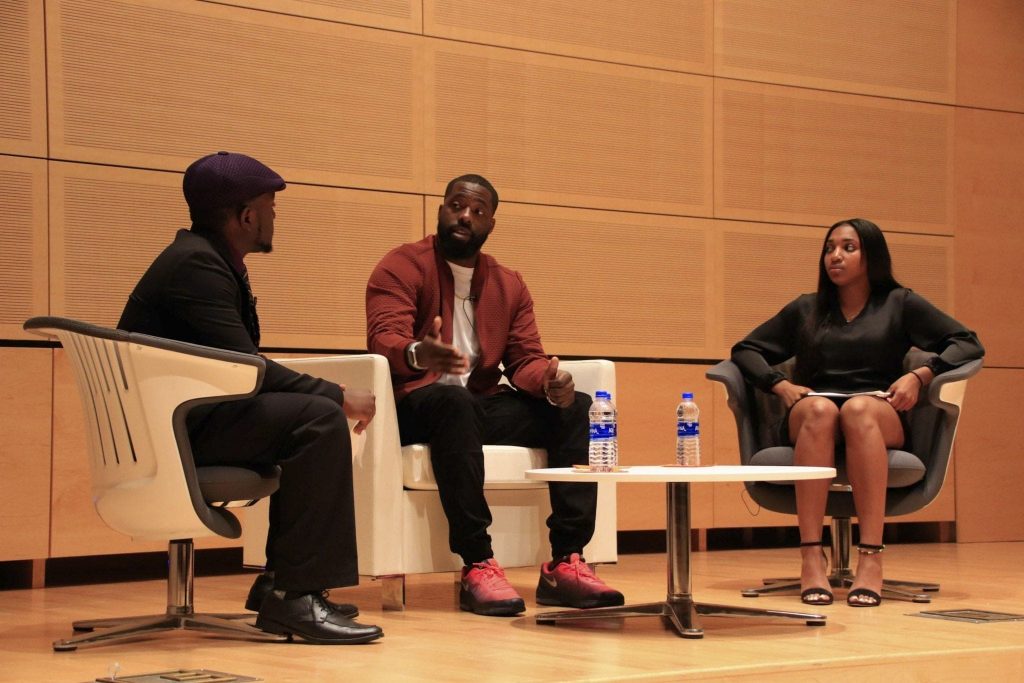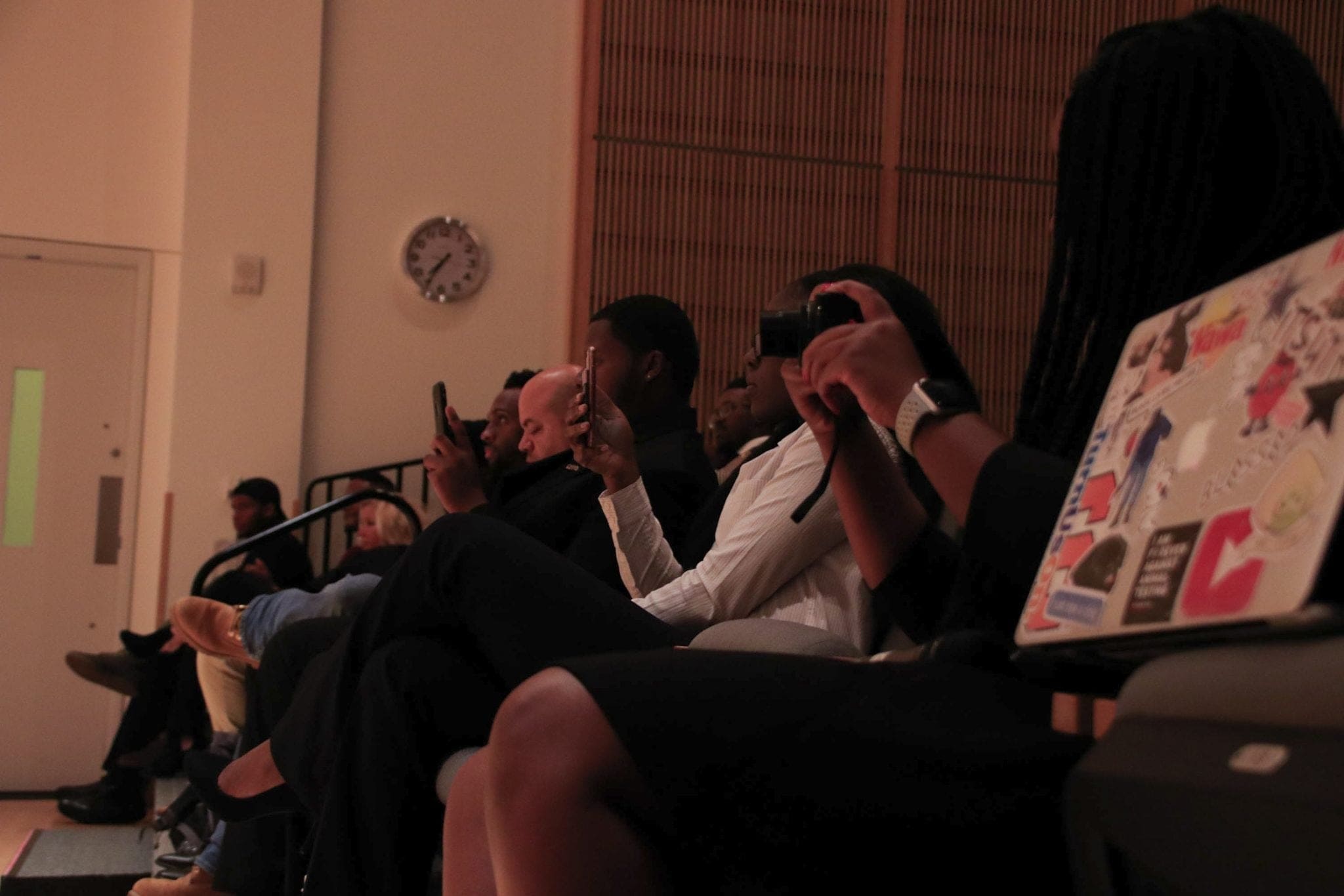Former NFL player Brian Banks speaks out for judicial reform
Former NFL player Brian Banks speaks out for judicial reform

Former NFL player and activist Brian Banks was 16 years old when he drove to a well-known “make out” spot on his high school campus with a girl. The star linebacker, ranked 11th in the nation, had just committed to the University of Southern California to play football. Banks was arrested and falsely charged with kidnapping and rape that same day.
The Kappa Chapter of Omega Psi Phi Fraternity and the National Association of Black Journalists brought Banks to the Joyce Hergenhan Auditorium tonight to speak about how he was wrongfully convicted of kidnapping and rape in 2002.
Upon being falsely accused, Banks had two choices: go to trial and risk being sentenced to 41 years to life in prison, or accept a plea bargain and serve six years in prison for a crime he did not commit. He chose to plead no contest and was sentenced to six years in prison, another five years of parole and had to register as a sex offender.
During his first two weeks in prison, Banks lost 14 pounds. He spent a lot of time in and out of the prison infirmary and didn’t talk to anyone.

“I waited in one space and waited for my cell door to open and for them to say, ‘We figured this thing out, you can go home,’” Banks said.
Tired of waiting for his rescue, Banks had an epiphany. He would take matters into his own hands. “Nobody’s gonna work harder for you than you … I would no longer allow this situation to control my life,” Banks said. “I began to get into a wide variety of studies.”
In addition to practicing his penmanship, he read the dictionary (more than once), the thesaurus, religious texts, self-care and self-help books.
“I wanted to better myself and be better than the accusation that was made against me,” Banks said.
When he was released from prison, Banks still wasn’t cleared of the accusation or charges made against him. He had a GPS bracelet on his ankle for two years and had a hard time finding work.
“Not only was I put into a cage for five years to live like an animal, but once I was released from prison, I was labeled and branded a monster, and that’s how I was treated for five years,” Banks said.
Banks was not exonerated until May 2012, over one full year after his accuser confessed to fabricating the story. Banks said that society needs to put more pressure on people who investigate crimes and are involved in the judicial process, like police officers, judges and detectives.
“The goal and the aim are to protect everyone who needs to be protected, [and] punish those who need to be punished,” he said. “Every person that’s put behind bars for something they didn’t do is just adding to the number of victims in this world.”
When asked what he would say to young black men in a situation similar to his, Banks said: “You will not be able to change what you experience, [and] you can’t change the past… Stay strong, believe in yourself, and allow people to come into your life to help you.”





